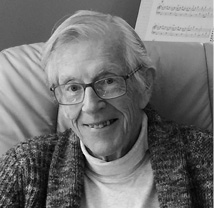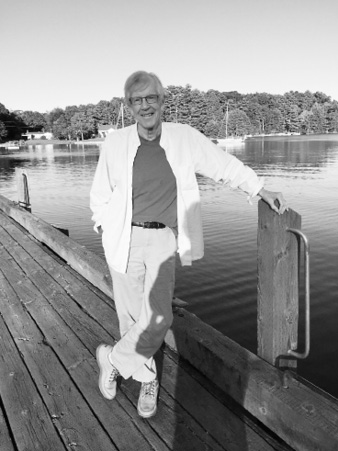Labour / Le Travail
Issue 85 (2020)
Obituary / Nécrologie
From the “Dark Druidical Groves” to the “Dartmouth Station”: A Tribute to Michael S. Cross

Michael S. Cross, 1938–2019
Michael Cross, one of Canada’s earliest and most influential social historians, was born in Toronto in 1938. He studied history at the University of Toronto and received all three degrees there, in 1960, 1963, and 1968, respectively. As was common in the 1960s, he began teaching before completing his PhD and spent two years at the University of Calgary (1964 to 1966) and at Carleton University (1966 to 1968). After successfully defending his PhD thesis on the early lumber trade in British North America, especially the Ottawa Valley, Michael returned to the University of Toronto in the fall of 1968.1 He moved to Dalhousie University in 1975 and remained there for the rest of his career, retiring in 2002. He died in Halifax on 18 September 2019, about a month short of his 81st birthday.
Michael was a man of many talents. As a scholar he was a pioneer of Canadian labour and social history. As a journal and magazine editor he oversaw creative years in the 1970s at the Canadian Historical Review and Canadian Forum. As a book editor he initiated the Canadian Social History Series at McClelland & Stewart and produced its first eight volumes as well as the five-volume Readings in Canadian Social History series.2 As an undergraduate lecturer he was quite simply brilliant, as I experienced first-hand both as a student at the University of Toronto and later as a faculty member co-teaching with him at Dalhousie. As a graduate supervisor he oversaw some thirteen PhD dissertations at Toronto and Dalhousie and numerous master’s and honours theses.3 As an academic administrator at Dalhousie, he served as department chair twice, as associate dean of arts, and as dean of Henson College of Public Affairs and Continuing Education. As a labour activist he worked on numerous Canadian Association of University Teachers committees and inquiries, helped to organize the first faculty union at Dalhousie, and served as chief negotiator for the first collective agreement.
Such an enumeration of achievements, however, fails to communicate adequately his inspirational role for the first generation of scholars who identified with “history from the bottom up.” As Bryan Palmer recently wrote, “Michael Cross was a pioneer. No other historian of his generation stepped outside of the established boundaries of interpretation with the same kind of panache as did Michael. Among his peers, he stood alone as an unambiguous proponent of new ways of looking at Canadian history.”4
I first encountered Michael soon after his much-anticipated arrival at the University of Toronto in the fall of 1968. In that first semester I took his part of a new Canadian economic and social history course co-taught, ironically, with Michael Bliss (from a different ideological space!), also newly appointed. Michael’s lectures on late eighteenth- and early nineteenth-century settler society in the early stages of capitalist development presented new views of pre-Confederation Canada, as did his early published work on the lumber industry, riots in Bytown, and the Shiners’ War in the Ottawa Valley.5

As a colleague Michael served as a remarkable and generous mentor, lending his support in numerous ways. When Labour/le Travailleur emerged from discussions at what was then the Committee on Canadian Labour History, he immediately agreed to serve on its first editorial advisory board and supported its rookie editor with sage advice.6 He also agreed to write a historiographic essay for its inaugural volume and then shocked the newbie editor by delivering a satirical tour de force that launched the journal on a unique path.7
After his retirement Michael returned to a project that he had commenced many years before: a biography of the Canadian Reform leader and “father of responsible government” Robert Baldwin. His multiple-prize-winning volume brought together the politics of the Union period with his profound understanding of its economic and social underpinnings. He also brought his own warm and empathetic understanding to the troubled private life of the depressive Baldwin.8
Michael will probably be best remembered as an extraordinary teacher. Former students and colleagues are unanimous in their praise of his lecturing and mentoring. At his memorial service all speakers reflected on his remarkable talent and influence in this realm of academic life, for which the Dalhousie Alumni Association in 1995 honoured him with its Award for Excellence in Teaching. Michael’s colleague Todd McCallum in a recent reminiscence recalled in loving detail a guest lecture Michael delivered in 2004, in the buildup to the second Iraq War. Michael had opened with Neil Young’s “Helpless,” closed with his “Ohio,” and, in between, explored the antiwar movement of the 1960s and early 1970s. McCallum’s moving account brought back many memories for me and captured Michael at his political and academic best.9
1. “The Dark Druidical Groves: The Lumber Community and the Commercial Frontier in British North America to 1854,” PhD thesis, University of Toronto, 1968.
2. The Canadian Social History Series continued at M&S under my editorship until it moved to Oxford University Press in 1996 and then to the University of Toronto Press in 2004, where it still resides. It now consists of over 40 titles in addition to those originally commissioned by Michael. The Readings in Canadian Social History series, which I co-edited, arose from the social and economic history course that Michael and I developed and co-taught at Dalhousie from 1975 to 1980.
3. His PhD students included William Westfall, Robert Fraser, Nolan Reilly, Ian McKay, Suzanne Morton, Janet Guildford, and Peter Twohig, among others.
4. Bryan Palmer, “Commentary,” presented at Michael Cross memorial service, Dalhousie Faculty Club, 6 December 2019 (wording from his email to me, 3 December 2019).
5. “The Lumber Community of Upper Canada, 1815–1867,” Ontario History 52 (December 1960): 213–233; “Stony Monday, 1849: The Rebellion Losses Riots in Bytown,” Ontario History 63 (September 1971): 177–190; “The Shiners’ War: Social Violence in the Ottawa Valley in the 1830s,” Canadian Historical Review 54, 1 (1973): 1–26.
6. Both entities were subsequently renamed. Travailleur became Travail to eliminate the gender-specific name and the cclh became the Canadian Committee on Labour History to broaden its purview.
7. “To the Dartmouth Station: A Worker’s Eye View of Labour History,” Labour/le Travailleur 1 (1976): 193–208.
8. A Biography of Robert Baldwin: The Morning Star of Memory (Toronto: Oxford University Press, 2012). The book received the Osgoode Society’s John T. Saywell Prize and the Canadian Authors’ Association’s Lela Common Award.
9. Todd McCallum, “Remembering Historian Michael Cross, 1938–2019,” Nova Scotia Advocate, 7 December 2019. See also Peter L. Twohig, “Remembering Michael S. Cross,” Acadiensis Blog, 23 October 2019, https://acadiensis.wordpress.com/2019/10/23/remembering-michael-s-cross/.
How to cite:
Gregory S. Kealey, “From the ‘Dark Druidical Groves’ to the ‘Dartmouth Station’: A Tribute to Michael S. Cross,” Labour/Le Travail 85 (Spring 2020): 9–12, https://doi.org/10.1353/llt.2020.0001.
Copyright © 2020 by the Canadian Committee on Labour History. All rights reserved.
Tous droits réservés, © « le Comité canadien sur l’histoire du travail », 2020.